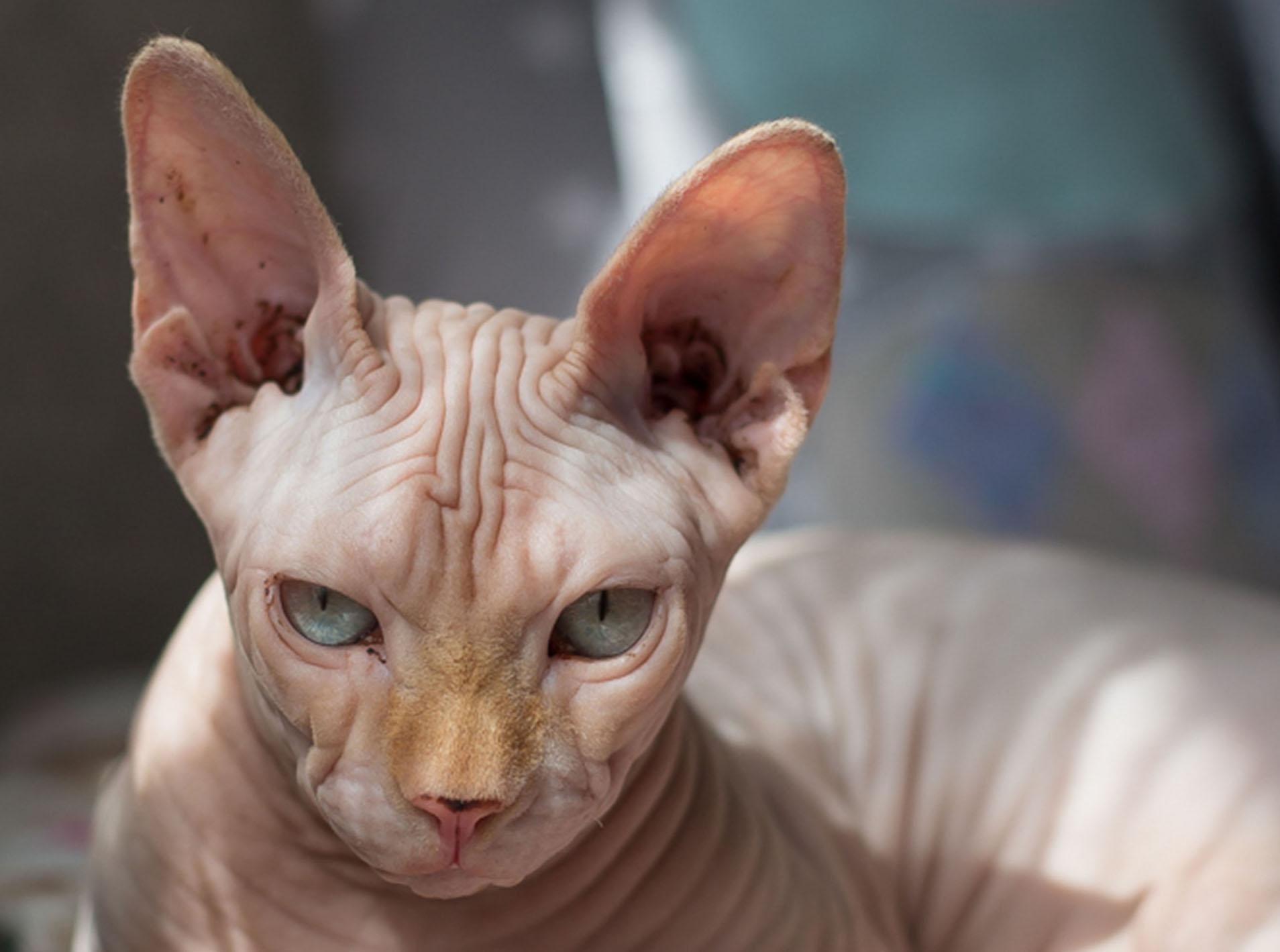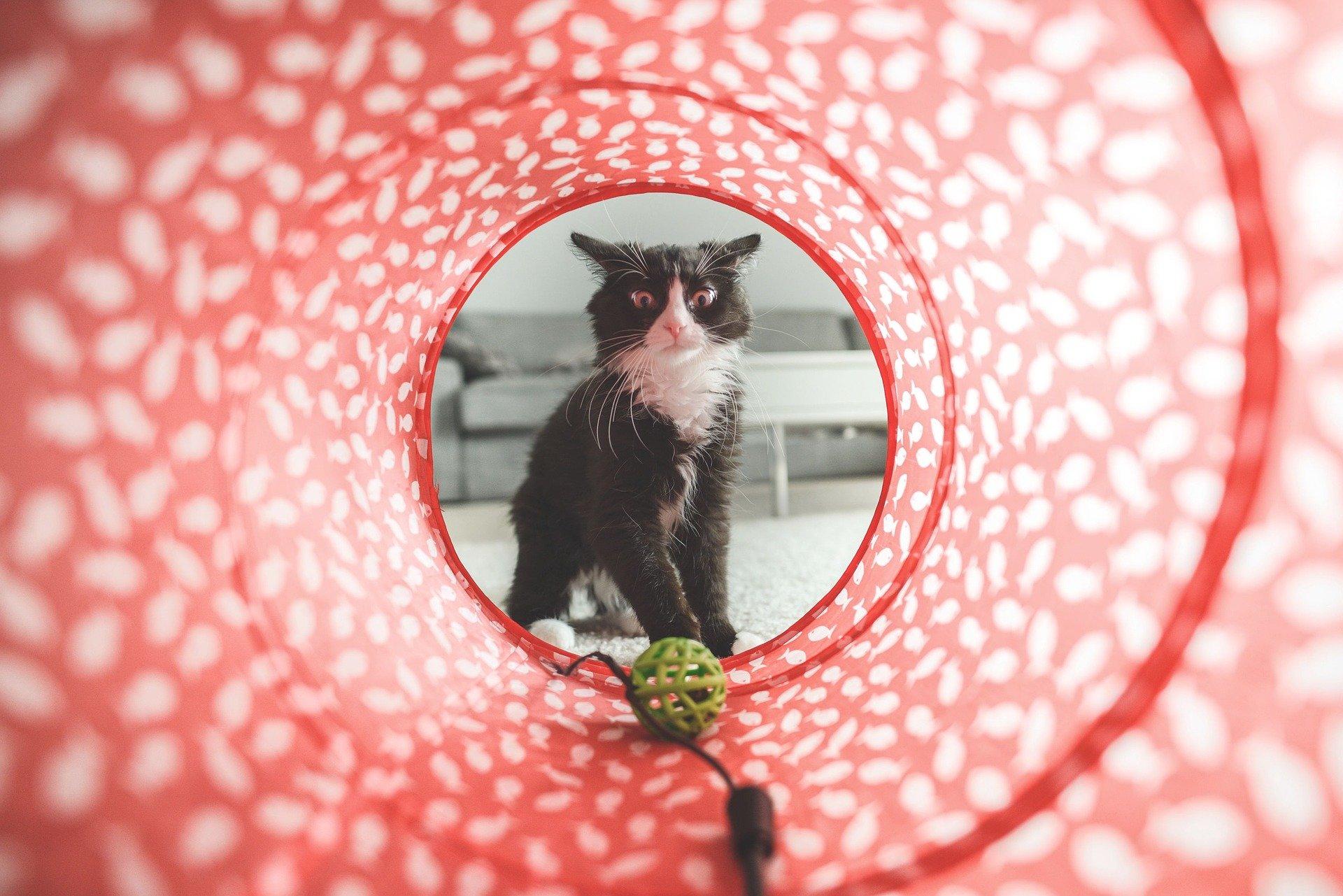My Cat Doesn't Like Me - Reasons Why and What to Do



See files for Cats
If you have just adopted a cat, knowing whether they will like you is a concern. A cat rejecting you means you will have difficulty forming a bond. Both the cat's well-being and our own can be seriously affected, making it difficult for them to remain in the home. What can be even more confusing is when your cat doesn't like you anymore, even when they previously had been affectionate toward you. Knowing why a cat doesn't like us requires us to assess both their situation and our behavior towards them.
This AnimalWised article investigates what to do when you say to yourself my cat doesn't like me. Firstly, we will determine the different reasons why a cat either doesn't like you anymore or has never done so. Then we look into what we can do to help build the love and mend the relationship between you and your cat.
Reasons a cat doesn't like me
If you are worried about your cat not liking you, knowing exactly why can prove difficult. It may be a combination of issues, but some of the most common are because:
- We are excessively affectionate
- They had a negative experience
- We have not yet connected
- They do not have the necessary care
- There has been a significant change in their environment
- They are suffering illness or disease
We explain these reasons further and also provide some insight into how we can improve the situation. You can also read our related article on how to know if a cat trusts you for further information.
Does my cat love me?
Contrary to what many believe, cats are both sociable and affectionate animals. At the same time, they will not always be receptive to our attempts to pamper and show affection. Each cat is an individual and they will have individual needs. Some will need more space than others and the amount of affection they show toward us can depend on their mood.
For the above reasons, we need to know that not every action has to do with us. For example, if your cat rejects you when you try to pet them, this doesn't mean it is personal. They may be tired or simply not in the mood for companionship at that moment. Another common action is when cats leap our of our arms when we pick them up. Many cats do not like to be picked up as it makes them feel restrained, but it doesn't necessarily mean they don't love us.
It is vital that any cat guardian learn feline body language and calming signals. Since cats communicate with us in different ways, we meed to understand these communication methods to know they feel at a given time. This way you will know when a cat simply wants to be left alone or when they may be more receptive to interaction.
However, if the cat is consistently wanting to stay away from you, it means there is something wrong. It doesn't necessarily mean they don't like you, but it may be that we are doing something which is hurting our bond. Often it may be something we don't even know we are doing which is why a cat my suddenly change their behavior toward you.

Reasons why my cat doesn't like me
If you are worried your cat has stopped loving you or never liked you in the first place, there will be a reason behind it. While understanding these reasons is not an easy task, we can point you in the right direction. The following is a list of some of the most common reasons a cat appear to not like somebody:
We are excessively affectionate
While healthy cats will enjoy physical displays of affection, it is possible this can be excessive. A cat's coat and demeanor can make it difficult for us to not want to pet them, but we need to respect their boundaries. Although a social animal, cats do need their independence. If we continuously interrupt their routine and try to force physical interaction, it can lead to distrust, anger and even aggression.
Additionally, we need to know certain contexts when we should avoid disturbing them. For example, if a cat is tired, coming over to pet them can upset their rest. if this happens regularly, resentment can build and they will be be unable to trust that you will leave them alone.
They had a negative experience
Human beings have many experiences with a person which results in our not liking them anymore. While feline psychology is not the same, a similar experience is possible in cats. One of the most common occurrences is when cat guardians regular scold or shout at their pets when they think they have done wrong. Rather than preventing unwanted behavior, this can create distance in the relationship.
When we tell off a cat, it is very common for them not to know why they are being scolded. This means even normal behaviors can be associated with negative feelings. From this perspective, it is not unreasonable to think a cat might want to avoid us. Other traumatic experiences can be associated with us, even if our intentions were good.
We have not yet connected
Some cats will bond with humans easily. It will not take any time for them to become affectionate. Other cats have a longer process when it comes to bonding with humans. This is especially so if they are entering a new family and home. It will take time for the cat to adapt to a new place, as well as become comfortable with the other people and animals within it.
Another factor particularly concerns cats which have been adopted as adults. Since they may have had experiences in the past which were traumatic or were never socialized properly, they may take a little longer to adapt.
They do not have the necessary care
As cats are domesticated animals, they rely on us to provide their necessary care in the form of food, water, shelter and other types of support. If this care is absent or insufficient, the cat will not see us as a source of security, but as a threat to it.
Providing for their basic care also involves ensuring they have their physical and psychological needs met. Especially with indoor cats, the animal will need to exercise and have their cognition stimulated through games and environmental enrichment. Without this, the cat may become stressed and hostile towards us.
There has been a significant change in their environment
Cats need to ensure their environment is safe to feel protected. This makes them very susceptible to problems when changes do occur. If there has been a recent significant change in the cat's home life, they may become insecure and wary of us. This is especially the case for cats which have not yet well-adapted to a home.
Examples of different changes in a cat's environment include when a new pet is brought home, a baby is introduced to the family or a family member leaves the home. Even seemingly small changes such as refurbishing a room or installing a conservatory can cause insecurity in the cat. Since they rely on their human guardians so much, leaving for extended periods (such as a vacation) can breed distrust as they may feel abandoned.
They are suffering illness or disease
In situations were a cat appears to stop liking us, we need to consider the possibility of a health problem. Cats have a high tolerance to pain and may not show obvious signs or symptoms. However, they may start to behave differently in general, including in their attitude towards us. In any cases were a cat's behavior suddenly changes, we should consider a physical health problem. We need to take them to the veterinarian to be examined and rule this out as a possibility.
How to get a cat to like you
In circumstances where your cat avoids being with your or directly rejects interaction, it is important to know the reasons behind this behavior. If you have been able to determine it is one of the above reasons a cat doesn't like you, the list provides advice about what you can do in each situation:
Give the cat time and space
In cases when a cat has only recently arrived in the home, we need to give them the opportunity to properly adjust to a new environment. This also includes the people and other animals within the home. It is vital we don't force interactions. If we do this, they can easily become threatened and we reinforce attitudes which can be very difficult to undo.
You may also be able to encourage positive interactions with the use of synthetic pheromones during the initial adjustment period. This will help the cat to create positively associations with both their new home and the persons within it.
Relate in a more positive way
If you have been living with a cat for some time, but there has never been a particularly strong bond, it may still be possible to strengthen your relationship. This is also something which can help in situations where the cat has had a bad experience in the home. By learning to interact with them in a more pleasant way and avoiding excessive interaction, we should be able to encourage health and well-being.
We can do this by looking at your cat's body language and expressions before interacting with them. If a cat is showing signs of aggression or stress, it is not a good time to interact. However, when the cat comes to us, lays down and shows sign they will be receptive to petting, we can try to slowly interact. As soon as they show any sign they no longer want to be touched, we need to stop. Little by little, we should be able to build until they are comfortable.
If we have been shouting at them or scolding them when they do something we don't like, this also needs to stop. Positive reinforcement means we can encourage them when they behave well, something which is much more successful.

Respect the cat's personality
A very common mistake is to believe that the cat does not love its tutors because it is not as affectionate as other cats with their humans. This is why we need to learn the personality of our cat and respect it. Some cats simply are not as playful as others. This is due to many factors including their breed, socialization, previous experience and others.
It is possible you cat is not overly affectionate, but this doesn't mean they do not like you. They may simply love you in their own way and enjoy a different type of being. You can learn more by discovering the different types of cat personality.
Enrich their environment and guarantee well-being
If you believe your cat's negative behavior is to do a threat to their well-being, there are different things you can do to help improve their situation. A cat will often become frustrated if they have a lack of entertainment, especially if they are an indoor cat and are left on their own for long periods.
Environmental enrichment involves providing things for the cat to occupy their time. They do this by appealing to their natural instincts. For example, a scratching tree not only allows them to sharpen their claws, it helps them to mark their territory. By placing it near a window, it will also help them to observe the outdoor environment. Toys and games are also very helpful to encourage cognition. Another cat can also help keep them engaged, although this may also cause further issues in the wrong circumstances.
If you see any signs of stress, you will need to take them to the veterinarian. They will first ensure there is not a veterinary medical problem causing the issues. If the problem is not physical, they will also be able to advise on speaking to an ethologist who will be best able to improve the situation for both you and your cat. s well-being falters somewhere. However, if you do not see an improvement or if you observe other serious symptoms, such as the cat stops eating, you should take the animal to the veterinarian to rule out any clinical pathology that may have altered his behavior.
If you want to read similar articles to My Cat Doesn't Like Me - Reasons Why and What to Do, we recommend you visit our Behavioral problems category.







